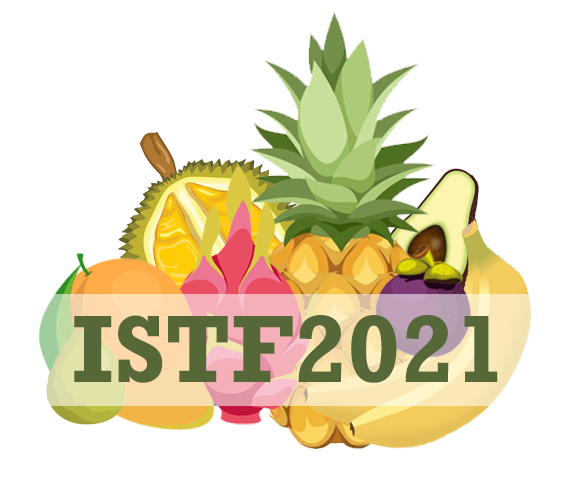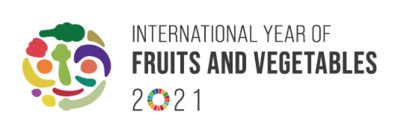
UPDATE: ABSTRACT SUBMISSION DEADLINE EXTENDED TO AUGUST 15
DATE AND VENUE
28-30 September 2021
Virtual Symposium (ZOOM)
THEME
Boosting Tropical Fruit Production, Consumption, and Market to Enhance Healthy Diets and Improve Livelihoods
SYMPOSIUM BACKGROUND
Tropical fruits are significant contributors in sustaining healthy diets, ensuring nutrition security.
It is projected that by 2050, most developing countries need to increase all food production by 60% to cater to the food requirements of 9 billion people. The tropical fruits sector contributes greatly to national GDPs and is fast becoming a valuable trade commodity as it is considered as a viable option for diversification from traditional export crops which are currently experiencing a downward trend in prices.
The global aggregate production of major tropical fruits was estimated at 207 million tonnes in 2017, a marked increase from previous years (FAO, 2019). The increase is in tandem with growing consumer demands and advantageous climatic conditions especially in major producing regions such as Asia. The positive trend signals an opportunity for industry players and producers to explore new markets for tropical fruits. With the favorable demand prospects for tropical fruits, the industry is forecasted to experience increased growth for the coming years. It is hence of importance that sustainable and innovative strategies be devised for boosting production levels.
The growing interconnectivity, cohesiveness and globalized nature of agriculture supply chains have added complex layers of relationships involving multiple actors across different points working towards ensuring balance between supply and demand. Though modern supply chains have increased efficiency in marketing and trade, these chains have also become vulnerable, as any form of interruption at a single point can affect its overall functionality. As part of this larger agriculture supply chains, tropical fruit supply chains are not exempted. Modern day tropical fruit supply chains are threatened by postharvest losses and wastage, market unpredictability, in addition to unprecedented forces such as erratic climatic patterns. Markets for tropical fruits are also shaped by emerging trends such as shifting consumer preferences and advent of disruptive technologies. The recent COVID-19 pandemic created a ripple effect across tropical fruit supply chains. The industry had to adjust and adapt based on transformation of consumption patterns of masses and the retail ecosystems.
It is crucial to note that measures undertaken by countries to overcome supply chain disruptions may vary and are directly dependent on pre-existing resource capabilities such as financial and labor capacities, with well-developed nations or producers better equipped to counter adverse impacts while the least-developed countries continue lag behind. To address these disparities, it is imperative for a platform for sharing of lessons to be made available for countries and stakeholders of the tropical fruits industry to take stock of lessons learnt.
These developments set the momentum for discussions of the 2021 International Symposium on Tropical Fruits (2021). The theme selected for the ISTF 2021 is “Boosting Tropical Fruit Production, Consumption, and Market to Enhance Healthy Diets and Improve Livelihoods”. The International Symposium on Tropical Fruits (2021) coincides with FAO-UN’s International Year of Fruits and Vegetable (IYVF 2021), which was launched in December 2020. ISTF 2021 will raise the importance of tropical fruits in nutrition, food security and health, and be an important knowledge platform for industry players to explore, assess, and respond to current challenges faced by the industry.
AIM
ISTF 2021 aims at providing a platform for stakeholders in the tropical fruit sector to discuss and respond to existing challenges, transfer industry information, experiences, scientific and research findings of challenges, practical issues and success stories on value chain enhancements and postharvest management of tropical fruits. Specifically, it aims to:
- Assemble the latest scientific research, technology developments, best practices on value chain enhancement and postharvest management of tropical fruits;
- Assess supply/value chain innovations in tropical fruits;
- Assess the status of postharvest losses and waste related to tropical fruits;
- Discuss recommendations for adequate response measures for ensuring the resilience of supply chains in disruptions (i.e. COVID-19) while protecting smallholders of tropical fruits;
- Discuss the contribution of tropical fruits in sustaining healthy diets; and
- Provide a venue for information sharing among stakeholders.
THEMATIC AREAS
- Identifying, Addressing Risks and Driving Innovations from Disruptions: Climate Change, Covid-19 and Technological Disruptions
- Best Practices and Innovations to Increase Productivity
- Postharvest Innovations
- Linking Farmers to Markets: Integration into the Value Chains
- Consumer Trends and Expansion of Tropical Fruits in the Global Market
TARGET PARTICIPANTS
- Researchers and scientists
- Government representatives
- Representatives from international organizations
- Representatives from NGOs and civil societies
- Producers, agro-entrepreneurs, and members of cooperatives
- Other private sector stakeholders
- Students
REGISTRATION FEE
TFNet Members: USD 35/RM 150*
Non-members: USD 50 /RM 200*
*Fees in Ringgit Malaysia (RM) apply to Malaysians and students
PUBLICATION
The main document that will be produced are symposium proceedings (with e-ISBN), including a compilation of key presentations and other information materials. The proceedings will be indexed in CAB Abstracts and Google Scholar.

